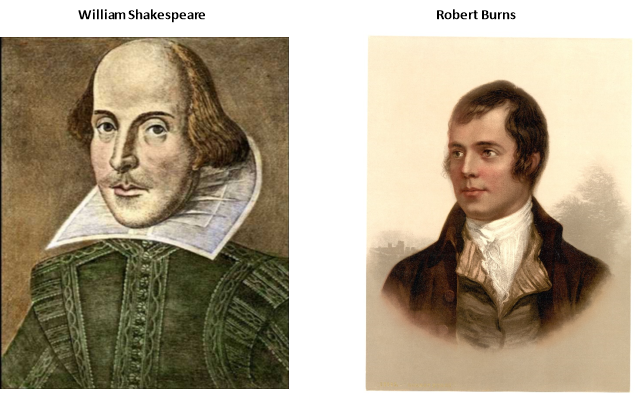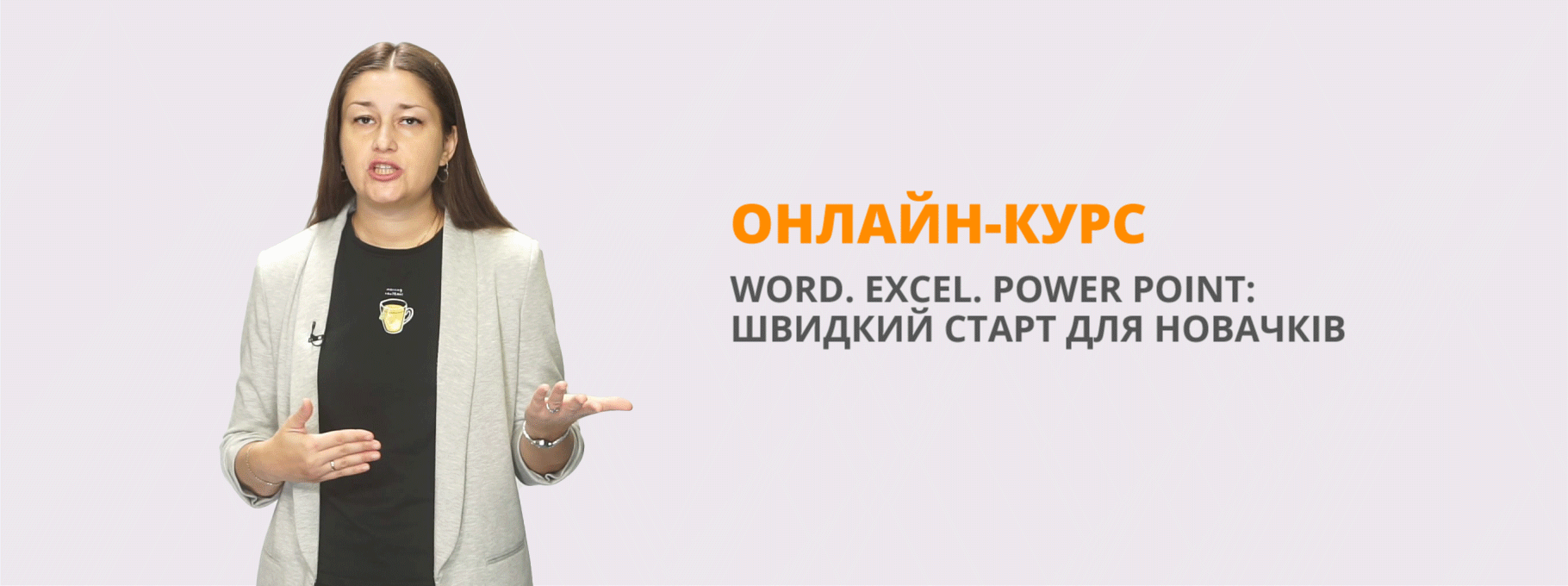Конспект уроку з англійської мови «Books And Authors» Form 8
«Books And Authors»
Form 8
Objectives:
- -to sum up the material about books and authors;
- -students will be able to say the words, word-combinations and proverbs on the topic;
- -to recite the poem «Bookland»;
- -to tell some facts from the life and creative work of W. Shakespeare and R. Burns;
- -to find out Future Simple Passive and different kinds of books;
- -to read the texts on the topic;
- -to understand the recording of the text about W. Shakespeare;
- -to make up short conversations and act them;
- -to act a fragment from «King Lear»;
- -to express their opinions on the problems under discussion;
- -to respect each other and the opinions of the people;
- -to bring up love to English literature
«Books And Authors»
Form 8
Objectives:
- to sum up the material about books and authors;
- students will be able to say the words, word-combinations and proverbs on the topic;
- to recite the poem «Bookland»;
- to tell some facts from the life and creative work of W. Shakespeare and R. Burns;
- to find out Future Simple Passive and different kinds of books;
- to read the texts on the topic;
- to understand the recording of the text about W. Shakespeare;
- to make up short conversations and act them;
- to act a fragment from «King Lear»;
- to express their opinions on the problems under discussion;
- to respect each other and the opinions of the people;
- to bring up love to English literature
Equipment: tape-recorder, a cassette, portraits of W. Shakespeare and R. Burns, cards, handouts.

Procedure
- Introduction
Greeting
Hello, everybody! Nice to meet you.
I hope you are ready for the lesson.
I’m sure we’ll have wonderful minutes of communication.
- Warming-up
- Do you like to read books?
- Do you spend much time reading them?
- What books would you take with you if you went to live on a desert island?
- Do you have any book by English or American writers
- Do you often go on the library?
- What is your favorite writer?
- Do you like to recite poems?
Let's recite a poem «Bookland» by Barbara Walker.
Don't forget to pronounce sounds [s], [z], [Ɵ], [i:] correctly.
Since books are friends
They need much care.
When you are reading them,
Be good to them and fair.
Use bookmarks, children,
To hold your place
And don't turn a book
Upon its clear face,
Remember, children, then:
Books are meant to read,
Not to cut or colour them,
No, really never indeed!
Look at the blackboard, please.
Complete the following sentences with the words and guess the theme of our lesson.
- When you do lessons you always consult...
- If time, you like to read...
- When you want to learn some facts about different countries you read…
- I am fond of reading...
- Shakespeare is a famous English…
What are we going to talk about?
That’s right! "Books and Authors" is the topic of our lesson.
- Main Part Of The Lesson.
Speaking
T: If you want to reach something in your life you must have knowledge. Knowledge is power. And a book is a source of knowledge. If you want to have a good education you have to read a lot of books.
Look at the cards with proverbs.
Match the parts of them, please.
|
1. The more you read |
A. a body without soul |
|
2. A good book is |
B. so faithful as a good book |
|
3. A room without book is |
C. the more you know |
|
4. There is no friend |
D. a source of wisdom |
1 – C; 2 – D; 3 – A; 4 – B.
We’ll work in two teams to agree or disagree with these statements.
Let’s talk about pros and cons of reading books.
Who knows the answers put up your hands, please
Possible answers:
The 1st group:
- Books broaden our outlook, develop our artistic taste.
- They give us a lot of useful information.
- Books teach us how to behave in difficult situations.
- They are good advisors.
- Books help us in solving life problems.
- Reading books is a great pleasure.
The 2nd group:
- Reading is out of fashion.
- Books are very expensive nowadays.
- Reading books takes much time.
- I prefer to watch different TV programmes and play computer games.
- Books are often too boring.
T: Thank you. I think the winner is the 1st group. The pupils have given more arguments.
Vocabulary Practice.
It's time to revise the words which are associated with the topic of оur lesson. There are some guests there. Each of them will tell us a definition, you'll guess a word. They'll help you if you can't do it.
S1: Someone who writes books, stories, plays, novels. (a writer, an author)
S2: A long written story, usually about characters and events that are not real. (a novel)
S3: Someone who writes plays. (a platwright)
S4: A room or building containing books that you can read there or borrow. (a library)
S5: A piece of paper that you put in a book so that you can find the page you want. (a book-mark)
S6: A shop that sells books. (a bookstore)
S7: The activity of looking and understanding wrtten words. (reading)
S8: Someone who writes poem. (a poet)
S9: A story for children in which magic things happen. (а fairy-tale)
S10: A piece of writing that is written in short lines, especially using words that rhyme (a poem)
S11: A set of printed pages, fastened together in a cover so that you can read then. (a book)
T: Well-done!
Now I’ll give you cards.
Read the sentences from various books.
Choose the best word from the box to describe the book.
|
Autobiography |
Detective story |
Ghost story |
|
Biography |
Science fiction |
Travel story |
|
Legend |
Love story |
Humorous story |
|
Fairy story |
True story |
|
- Professor Sores was lying on the floor of his office with a knife in his heart.
- "The robots are eating the cars!" shouted Dr.Trebius.
- I was born in a small house in the north of Warsaw in 1932.
- Alfred Hitchcock's childhood experiences can be seen in many of his films.
- Once upon a time a beautiful girl found a circle of mushrooms in the middle of the dark forest.
- On Saturday 23rd March 1996 the Chinese government decided to build a new power station in the south of Shanghai.
- I looked through the morning mist and saw the golden towers and places of Venice and heard the sounds of the fishermen singing in strong Italian voices.
- "Who will save Princess Rosepetal from the evil dragon?" kings Rufus asked his young knight.
- "I’ve been hearing some strange noises night. They come from that old house on the hill where those three girls were killed" Mrs. Simpson told the Inspector.
- Now know that I shouldn't have tried to clean the lion's cage while the lion was sleeping.
- When Fiona saw Magnus, she knew she would marry him one day.
You see there are various books.
What kinds of books do you like to read?
Short Conversations
Make up short conversation and act them.
Possible answers:
Dialogue №1:
S1: What are you fond of?
S2: I’m fond of literature.
S1: What kind of books do you like to read?
S2: I like to read novels by Mark Twain and Ernest Hemingway.
S1: I see you are fond of English and American literature.
S2: Yes, it’s true. And you?
S1: I’m fond of reading different kinds of book. I like to read adventure books, because the heroes of these stories are always ready to help each other.
Dialogue №1:
S1: Do you like to read?
S2: Yes, I do.
S1: What kind of books do you prefer to read?
S2: I prefer to read stories about animals and birds because they teach us to love nature, to help animals and birds and take care of them.
Speaking and Grammar
Well-done. And do you know where the books come from?
I think there is no doubt that you know it.
Open your textbooks, please. Let's do Eh.7 p.69
Look and order pictures. Describe the process of making a book. Use Future Simple Passive Voice.
- The bark will be removed from the logs.
- The logs will be chopped up very small.
- This will be rolled out into a long stripe.
Let’s read them.
Listening Comprehension
Now you will listen to the text.
Look at the photograph and guess what this text is about. You are right.
Listen to the text. Try to understand it and say if the statements are true or false.
W. Shakespeare
W. Shakespeare was the greatest English writer. He was born in 1564 in Stratford-upon-Avon. At the age of 18 he married Anne Hathaway, who was eight years older than himself. A few years later he moved to London, where he worked as an actor and a playwright.
Shakespeare wrote 37 plays and 154 sonnets. His most famous plays are the four great tragedies – Othello, Macbeth, Hamlet and King Lear. He also wrote several historical plays. But not all of his plays were serious. He also wrote comedies. Shakespeare died in Stratford-upon-Avon on April 23, 1616, but his plays are still very popular today. They have been translated into several different languages, and many of them have been made into films, both in English and other languages.
Do you think these statements are true or false?
- W. Shakespeare was born in 1654 in London.
- His most famous plays are the four great tragedies.
- He did not write comedies.
- His plays have been translated into several different languages.
- Shakespeare's plays are still very popular today.
Role-play Activity
Now I’ve got a surprise for you: you are going to see a fragment from W. Shakespeare's play got a “King Lear”
(music is sounding)
S1 Author: Many centuries ago there lived an old king of Britain. His name was Lear. He had 3 daughters – Goneril, Regan and Cordelia. Cordelia was his favorite child. As Lear was very old, he decided to divide his kingdom among his three daughters.
S2 King Lear: I want to divide my kingdom among you. The one, who loves me most, will have the largest part.
S3 Goneril: I love you more than anything in the world.
S4 Regan: I love you more than my life and my freedom.
S5 Cordelia: Father, I love you no more than a daughter can love her father.
S2 King Lear: Leave me! I don’t want to see you ever again.
S1 Author: He divided his kingdom between Regan and Goneril and Cordelia was given nothing.
Thank you. It was nice.
Let’s do a literary crossword.
- Robinson Crusoe lived in the city of … (York)
- The main character of a well-known tragedy by W. Shakespeare ... (King Lear)
- The first name of Kipling ... (Rudyard)
- The famous American writer, the author of «Sister Carrie's» ... (Dreiser)
- The English poet who fought for the liberation of Italy and Greece. (Byron)


про публікацію авторської розробки
Додати розробку
